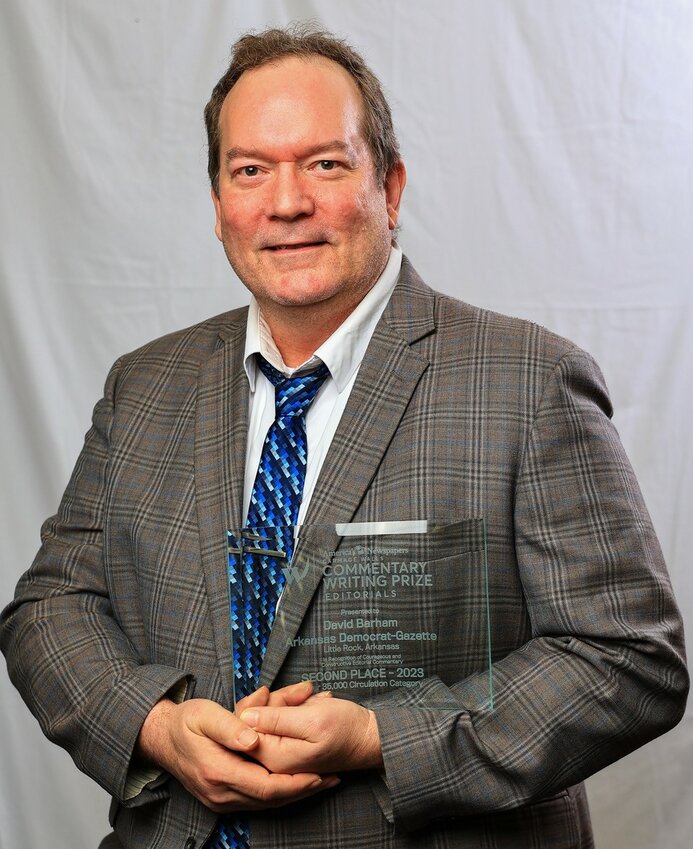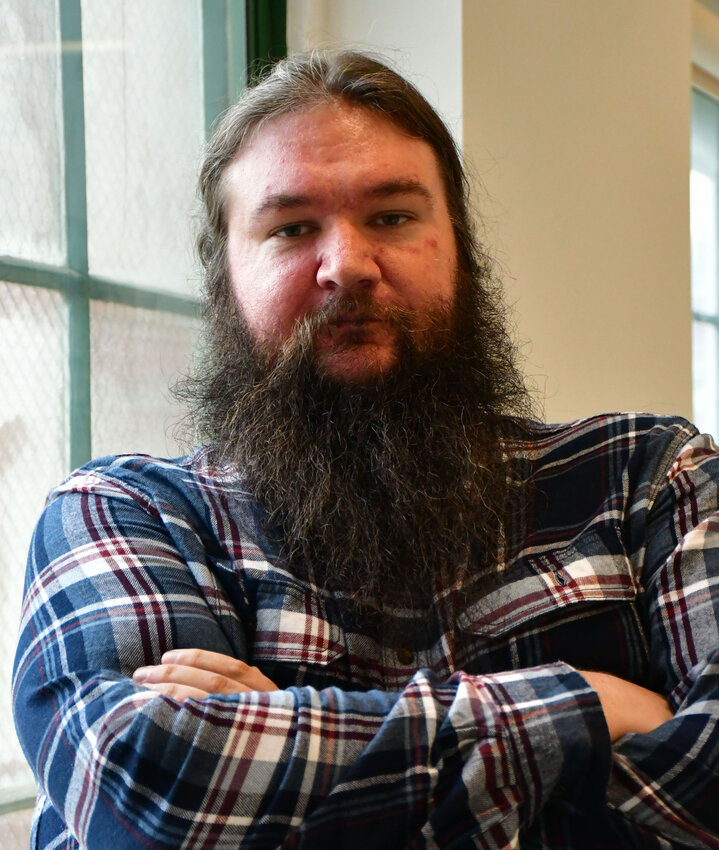
First Place
Clytie Bunyan
The Oklahoman
Oklahoma City
The Oklahoman two years ago moved away from publishing daily opinion content, including regular use of its institutional voice. Instead, the staff reimagined their approach to opinion by offering those pages as a platform for community voices, especially for marginalized communities. But, when the newly elected superintendent of public instruction showed a video at a Department of Education meeting that left teachers deflated, the paper published an editorial written by Clytie Bunyan, managing editor for diversity, community engagement and opinion, with a tagline: "This editorial reflects the opinion of this publication's Editorial Board."
She notes that there is a "super majority Republican government in Oklahoma, so the chances of the Legislature acting to remove the superintendent are slim." But, the paper wanted to go on record and loudly say his actions are unacceptable.
Judges said this entry had a "lot of energy" and represented "unapologetic opinion writing."
They said she called out a powerful figure and took a stand that was likely to be unpopular with many readers. It required courage to take on a powerful figure at a paper that was likely to have pretty conservative readership. They said the editorial was "well-written, timely, urgent and brave — all of the elements we were looking for."
The opening paragraph of this editorial reads: "Oklahoma, we elected a superintendent of public instruction who willfully neglects his duty to foster conditions for the academic growth of our children. Instead, he cares more about pushing harmful propaganda and demoralizing our teachers, already exhausted by his toxic rhetoric."
Read her entry:


Second Place
David Barham
Arkansas Democrat-Gazette
Little Rock
The Democrat-Gazette editorial writers touched on the Jan. 6 riots — and the court appearance and sentencings of various rioters — several times in the past few years. Three editorials on the subject, written by David Barham, editorial page editor, placed second in this year's contest.
Among the judges' comments:
Read his entries:

Third Place
Douglas Lyons, Editorial Writer
Tony Doris, Editorial Page Editor
The Palm Beach Post, West Palm Beach, Florida
The Palm Beach Post began raising concerns of the difficulty in obtaining property insurance amid the state's industry-friendly efforts to address the problem during and after two special legislative sessions in 2022 and again in this year's session of the Florida Legislature. These editorials resulted in greater awareness from readers and helped convince lawmakers to at least increase efforts to help policyholders.
Judges were impressed with this entry, noting that this is an issue that is top of mind in Florida.
Read their entries:
This link includes the following three editorials


First Place
Dave Coffey
The Berkshire Eagle
Pittsfield, Massachusetts
In a years-long investigative series, Berkshire Eagle reporting exposed the Roman Catholic Diocese of Springfield’s efforts to cover up credible sexual abuse allegations against a powerful former bishop. Without the courage of the survivor and dogged investigative reporting, Coffey says it’s likely that the truth of a prominent diocesan figure’s brutal behavior and the efforts to sweep it under the rug would have stayed hidden forever.
On his contest entry form, he said: "When the survivor led a civil suit over the childhood abuse he suffered and the mishandling of his report, the diocese responded in part by targeting The Eagle and the reporter who broke the story, Larry Parnass. The diocese threatened him with deposition and demanded an array of information from the newspaper including Mr. Parnass’ notes, which could have exposed confidential sources over years of sensitive reporting.
"Our editorials called out this chilling tactic for what it was: a shameless continuation of a discrediting campaign against an abuse survivor by going after the reporter who revealed damning truths in this regional chapter of the clergy abuse scandal. It was not just an attack on a community newspaper but a broadside against the First Amendment and the unique measure of accountability it vests in all newsrooms and editorial pages.
"When the diocese recently agreed to settle the civil suit, it formally admitted an abuse survivor’s truth that was raised from the dark depths to the surface in a way that only the free press can."
Judges said:
Read his editorials:

Second Place
John Nagy and David Woronoff
The Pilot, Southern Pines, North Carolina
The editorials submitted by John Nagy, editor, and David Woronoff, publisher, pertained to recent actions of the Moore County Board of Education.
Judges said:
Read his editorials:


Third Place
Dave Stafford
The Republic
Columbus, Indiana
After a local woman was murdered in her home by her estranged husband, who then killed himself, The Republic dug into the records. Stafford said it "became evident our courts had failed to protect her."
He said: "The woman had petitioned for a protective order against her estranged husband. She had gone to court and submitted evidence claiming domestic violence, yet the court declined to err on the side of caution and enter a protective order in her case.
"We felt a need to speak with a strong voice on our editorial page and call out this failing, and we did so, forcefully pointing out how our local courts failed to apply the law. Soon afterward, the local courts reaffirmed a commitment to protecting victims of domestic violence. Judges pledged to meet with local domestic violence prevention groups. Since then, these meetings have happened. Local law enforcement also met with domestic violence prevention advocates for joint training.
"We believe our editorials, and the public reaction to them, helped focus the community on a failure to protect when the courts' help was sought that we hope never happens again. The emphasis now is undoubtedly on prevention and protection."
Judges said:
Read his editorials:

Judges also recognized two additional finalists in this category:
Finalist
Corey Friedman
The Wilson Times
Wilson, North Carolina
On his entry form, Corey Friedman said: "The conservative backlash against school libraries over young adult books dealing with themes of gender, sexuality and race reared its head in our eastern North Carolina community last year, with members of a newly formed advocacy group attending school board meetings to highlight content they consider objectionable and ask the Wilson County Board of Education to create a rating system for library materials."
He added: "On its editorial page, The Wilson Times mounted a principled defense of the freedom to read on constitutional, moral and ethical grounds, explaining why the group's characterization of certain books as 'obscene' is inaccurate and how its proposed rating system is impractical and unnecessary. Appealing to the silent majority of public school parents who don't attend school board meetings, we explained that their right to make rules for their own children doesn't entitle them to deprive other parents of the same prerogative.
"To date, the Board of Education has not acted on any of the group's requests and is not considering a library book rating system. Our editorials on the subject steered public debate, reassuring board members that no policy changes are needed and generating numerous letters to the editor written in response, including several from members of Wilson Partners in Education, the advocacy group seeking the restrictions. The Times remains committed to the free flow of information and the principle that public libraries should serve as guides rather than gatekeepers."
Judges called these editorials "thoughtful, courageous and constructive."
They also said:
Entry includes 3 editorials:

Finalist
Michael Smith
The Galveston County Daily News
Galveston, Texas
The editorials helped expose some shady characters running dark-money campaigns in two small local cities.
Judges liked this editorial about shady characters running dark money campaigns, saying it had a clear point that the board was trying to make. It was written with some bite. In terms of courage, judges said this was a local issue taking on local folks who probably didn’t like that he was writing about this.
They called it "good, brave reporting."
Read his editorials: